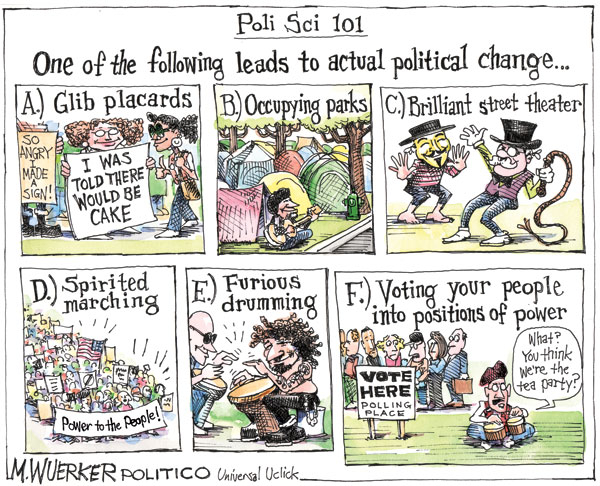LSU Football, Trademark, and “Honey Badger”
IP Law, Mercantilism, Protectionism I received three very useful and taxpayer-subsidized degrees from LSU. But I’ve never given them a dime, and never will (I do donate to my private high school, Baton Rouge’s Catholic High School). Up till now, there were two reasons for this. First, it’s a state university. I think they should be abolished. Second, like most modern universities, it is infected with, and propagandizes its students with, a bunch of horrible socialist, leftist, and statist ideas (luckily my two engineering degrees were largely immune from this, since you don’t have time for normative nonsense when trying to figure out electromagnetic fields, digital logic, and semiconductor physics; and even my law studies were mostly practical).
I received three very useful and taxpayer-subsidized degrees from LSU. But I’ve never given them a dime, and never will (I do donate to my private high school, Baton Rouge’s Catholic High School). Up till now, there were two reasons for this. First, it’s a state university. I think they should be abolished. Second, like most modern universities, it is infected with, and propagandizes its students with, a bunch of horrible socialist, leftist, and statist ideas (luckily my two engineering degrees were largely immune from this, since you don’t have time for normative nonsense when trying to figure out electromagnetic fields, digital logic, and semiconductor physics; and even my law studies were mostly practical).
But now I have a third reason. I’m a big LSU football fan, and of course and am enjoying the current season, with LSU at 13-0 and slated to play Alabama (second only to Michigan on the annoying fans index) for the national championship next month. One of LSU’s most impressive players this year is sophomore cornerback Tyrann Matthieu, truly an amazing athlete, who has garnered the nickname “Honey Badger” “for his tenacious ability to play extremely tough football against much larger opponents, as well as his knack for making big plays”. As the Wikipedia entry for Honey Badger notes, “The nickname became popular during the 2011 college football season, when it was often referenced in the national media. ‘He takes what he wants’ said CBS sportscaster Verne Lundquist of Mathieu.” Other expressions used for him are “Honey Badger don’t care”.
Well, according to the “LSU Compliance,” Honey Badger Does Care–if you use “honey badger” without LSU’s permission and paying them an appropriate fee! This claim is surely false, as any permission is granted by, and any fees paid go to, LSU, not Mathieu. Whose nickname is it, anyway?
As the entry specifies:
The LSU Compliance Office has issued several Cease & Desist notifications for products including the name, likeness and/or image of LSU football student-athlete Tyrann Mathieu.
Please be advised that the sale of any products and/or advertisements including the name, likeness or image of this individual or any other LSU student-athlete is in violation of NCAA Bylaw 12.5.2.2 and could have a negative impact on the involved student-athlete’s eligibility.
Apparel or paraphernalia including the phrase “Honey Badger” accompanied by the number 7 or the individual’s name or any other variation thereof (e.g., TM7, TM, HB7, etc.) is prohibited. Because it is a recognizable nickname, “Honey Badger” is considered a likeness of Tyrann Mathieu under NCAA regulations.
?Examples of Impermissible Products/Advertisements ? The word “Honey Bader” or an image of a Honey Badger accompanied by?: The number 7? ? TM7 (or any other likeness) ? Name of individual ? Image of individual? ? ?LSU
LSU then “helpfully” provides examples of “impermissible items” for which they have issued “Cease & Desist notifications”–just to let you know they mean business.
Truly disgusting, but par for the course for our mercantilist, protectionist, IP-centric form of corporatism in which the powerful state helps big corporations (and socialist state universities) bully individuals and small competitors with pseudo-“property rights” like patent, trademark, and copyright.
I’m sure Alabama pulls the same stunts. Otherwise I might have to hold my nose and pull for them on Jan. 9.
(h/t Skip Oliva)
[c4sif]
LSU Football, Trademark, and “Honey Badger” Read Post »


